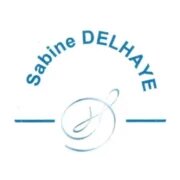Best Collaborative Law Lawyers in Luxembourg
Share your needs with us, get contacted by law firms.
Free. Takes 2 min.
Free Guide to Hiring a Family Lawyer
List of the best lawyers in Luxembourg, Luxembourg
About Collaborative Law in Luxembourg, Luxembourg:
Collaborative Law is a voluntary dispute resolution approach that allows parties to resolve their legal issues without going to court. It encourages open communication and problem-solving while maintaining a respectful and constructive environment. In Luxembourg, Collaborative Law aims to provide an alternative to traditional litigation, offering a more amicable and cost-effective resolution process.
Why You May Need a Lawyer:
There are various situations where you may benefit from seeking a lawyer's assistance in Collaborative Law:
- Divorce or separation: If you and your partner are considering ending your marriage or partnership, a Collaborative Law lawyer can help you navigate the process, ensuring that your rights and interests are protected.
- Child custody disputes: When disagreements arise regarding the custody or visitation of your children, a lawyer with expertise in Collaborative Law can guide you through the negotiation process and help find an agreement that is in the best interests of the child.
- Property division: If you are going through a divorce or separation and need to divide joint assets, a Collaborative Law lawyer can assist you in reaching a fair and mutually beneficial settlement.
- Parenting plans: Creating a comprehensive parenting plan that outlines the rights and responsibilities of each parent can be a complex task. A lawyer experienced in Collaborative Law can provide valuable guidance and ensure that the plan meets your family's unique needs.
- Disputes involving businesses or estates: If you are facing conflicts related to business partnerships, inheritance, or other similar matters, a Collaborative Law lawyer can help facilitate negotiations and find creative solutions.
Local Laws Overview:
Under Luxembourgish law, Collaborative Law is regulated by the modified Law of 18 July 2003, which introduced specific provisions for Collaborative Law proceedings. This law emphasizes confidentiality, fairness, and the voluntary nature of the process. It also ensures that any agreement reached through Collaborative Law may be approved by a court, thereby making it legally binding.
Frequently Asked Questions:
1. What are the advantages of Collaborative Law in Luxembourg?
Collaborative Law promotes open communication, empowers individuals to find their own solutions, and allows for more control over the outcome compared to court litigation. It is generally less stressful, time-consuming, and costly.
2. Is Collaborative Law suitable for every legal dispute?
Collaborative Law is well-suited for a range of disputes, including divorce, child custody, property division, and business conflicts. However, it may not be appropriate in cases involving domestic violence, a significant power imbalance between parties, or when one party is unwilling to participate in good faith.
3. How long does the Collaborative Law process typically take?
The duration of the process depends on the complexity of the issues involved and the willingness of the parties to collaborate. While there is no fixed timeframe, Collaborative Law often offers a faster resolution compared to traditional court proceedings.
4. Are the negotiations and discussions confidential in Collaborative Law?
Yes, confidentiality is a fundamental aspect of Collaborative Law. Parties and their lawyers sign an agreement committing to keep all discussions and negotiations strictly confidential, creating a safe and open atmosphere for resolution.
5. What happens if we cannot reach an agreement through Collaborative Law?
If an agreement cannot be reached through Collaborative Law, the parties will need to pursue alternative dispute resolution mechanisms, such as mediation or litigation, to resolve their legal issues.
Additional Resources:
Below are some resources and organizations in Luxembourg that can provide further information and assistance regarding Collaborative Law:
- Collaborative Law Luxembourg - Website: www.collaborativelaw.lu
- Luxembourg Bar Association - Website: www.barreau.lu
- Ministry of Justice - Website: www.mj.public.lu
Next Steps:
If you require legal assistance in Collaborative Law, here are the recommended steps to follow:
- Research and identify lawyers in Luxembourg who specialize in Collaborative Law.
- Contact potential lawyers to schedule initial consultations and discuss your case.
- During the consultations, evaluate the lawyer's expertise, experience, and approach to Collaborative Law.
- Select a lawyer who you feel comfortable working with and who best suits your needs.
- Initiate the Collaborative Law process by signing a participation agreement with your chosen lawyer and the other party.
- Collaborate with your lawyer and other involved professionals to work towards a mutually satisfactory resolution.
- If an agreement is reached, have it reviewed by a court to make it legally binding.
- If an agreement cannot be reached, discuss alternative dispute resolution methods with your lawyer.
Lawzana helps you find the best lawyers and law firms in Luxembourg through a curated and pre-screened list of qualified legal professionals. Our platform offers rankings and detailed profiles of attorneys and law firms, allowing you to compare based on practice areas, including Collaborative Law, experience, and client feedback.
Each profile includes a description of the firm's areas of practice, client reviews, team members and partners, year of establishment, spoken languages, office locations, contact information, social media presence, and any published articles or resources. Most firms on our platform speak English and are experienced in both local and international legal matters.
Get a quote from top-rated law firms in Luxembourg, Luxembourg — quickly, securely, and without unnecessary hassle.
Disclaimer:
The information provided on this page is for general informational purposes only and does not constitute legal advice. While we strive to ensure the accuracy and relevance of the content, legal information may change over time, and interpretations of the law can vary. You should always consult with a qualified legal professional for advice specific to your situation.
We disclaim all liability for actions taken or not taken based on the content of this page. If you believe any information is incorrect or outdated, please contact us, and we will review and update it where appropriate.















